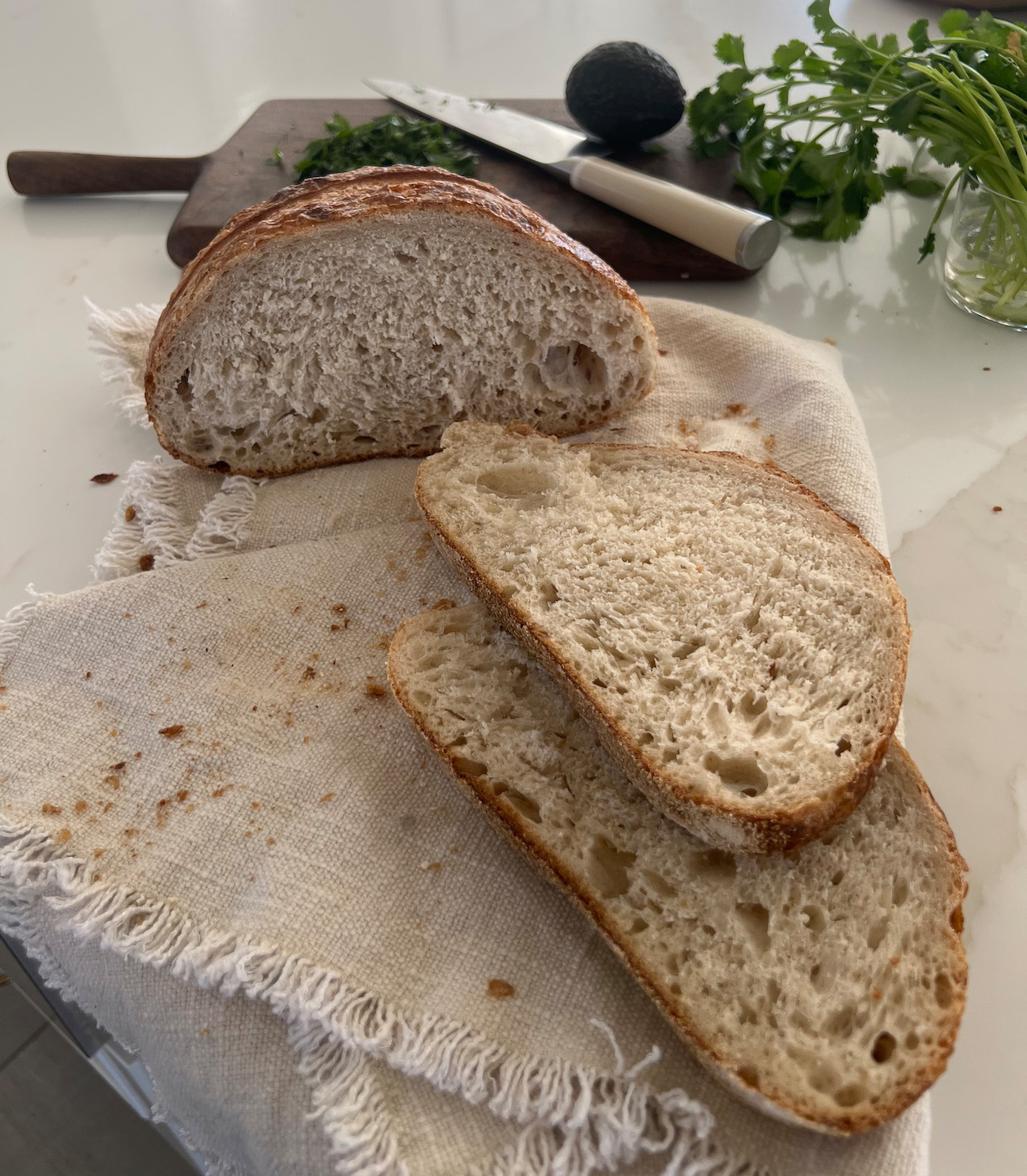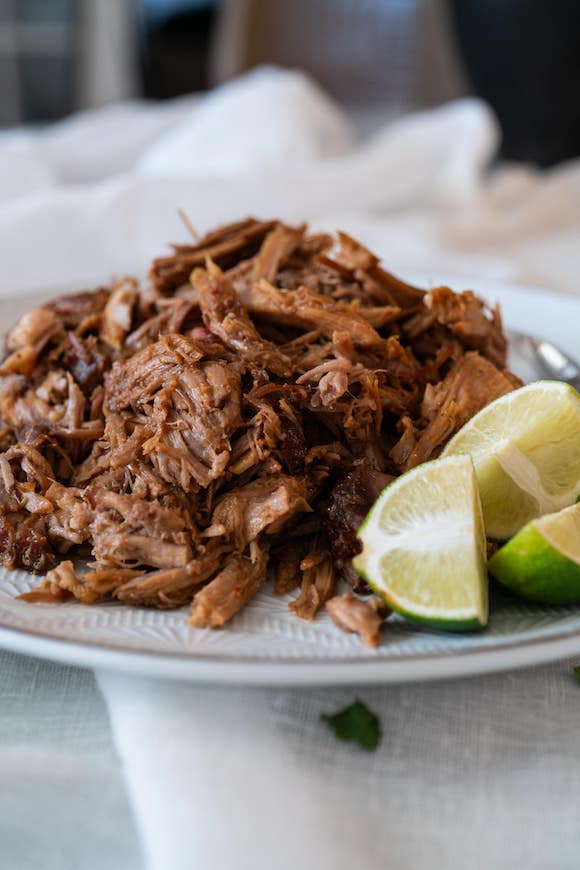
If you follow me on social media or have been part of my newsletter for a while, you know I am in the midst of a very personal health journey. To bring you up to speed, back in 2020-2021 I gained roughly 80 pounds. My health was severely suffering. High cholesterol, a thyroid misdiagnosis, and a hormone imbalance I couldn’t quite figure out. Not to mention, that simply standing to cook a meal, was something I couldn’t do because the excess weight didn’t allow me to stand up for a prolonged period.
It was hard. I was sad. I felt horrible.
After plenty of doctor visits, second opinions, medication, and so on, I started doing the work. I’ve lost 64ish pounds, but most importantly my health is back to normal and can I just say I am so grateful. Somehow what started as “getting back in shape” became “being the healthiest and strongest I’ve ever been in my life.” It’s been an imperfect journey. I have my good days and my bad days, but most of all I prioritize working out – can’t even believe that’s the truth. I have never been a gym girlie. I try to eat as balanced as possible. I still have my wine, still have my pizza, but also I have my vegetables, my protein, and healthy, whole foods.
So, in the midst of all of this, I began observing my daily food reactions, scrutinizing the ingredient list, and understanding the intricate relationship between what I eat and how it impacts my overall well-being. And can I just say, that the last part can be its own other story. Whoa! And now that you’re all caught up, I felt compelled to share some of my food findings. In case you might be on your journey or simply looking to incorporate other foods into your diet.


Enter – sourdough bread. I’m sure you didn’t see that coming!
I’m a bread lover through and through, so cutting bread out of my life is a non-negotiable. if I’m being honest it took me a long time (40 years to be exact) to get to a place where I no longer subscribe to “low carb,” “low fat,” etc.
Before I go on…
Disclaimer: This is not to say you need to subscribe to any of my beliefs. I’m no doctor or health care provider. I’m also not living in your shoes. This is just me simply telling you what works for me.
Okay back to sourdough. My life saver!
To start, sourdough bread, unlike its conventional counterparts, undergoes a natural fermentation process. A transformation that happens when tiny microorganisms, like bacteria or yeast, feast on sugars in food. They break down those sugars into other substances, like acids or gases, and in the case of sourdough bread, fermentation is what gives it its tangy taste and fluffy texture. It also renders the bread more digestible and nutritious.
Think of fermentation as nature’s way of making food tastier and healthier.
So, as a former multi-grain and wheat bread aficionado, transitioning to sourdough has been a game changer. For nearly a year now, I’ve savored its benefits. For me, no more bloating, smoother digestion, and ‘be gone’ the feeling of heaviness after consuming a good portion of it.
here’s what i’ve learned…
- Easier Digestibility: Sourdough bread is gentler on your stomach because the fermentation process breaks down tough stuff like gluten (a protein in wheat that some people have trouble digesting) and phytic acid (a compound that can make it harder for your body to absorb nutrients).
- Nutrient Absorption: Fermentation also helps your body soak up more of the good stuff in the bread, like vitamins and minerals. So, you get more bang for your bite!
- Lower Glycemic Index: Sourdough bread doesn’t cause a big spike in your blood sugar like some other breads do. That means you won’t get that energy crash later on.
- Prebiotic Properties: Eating sourdough bread helps your belly buddies – the good bacteria in your gut – grow and thrive. A happy gut means better digestion and a stronger immune system.
- Reduced Acrylamide: Sourdough bread is cooked in a way that makes it less likely to have harmful stuff called acrylamide. Acrylamide is a chemical that can form in some foods during high-temperature cooking processes, such as frying, baking, roasting, and toasting. It’s created from natural sugars and an amino acid called asparagine that is present in foods. Research has shown that high doses can be harmful and potentially increase the risk of cancer. This is why it’s important to be aware of acrylamide levels in the foods we eat and how different cooking methods can influence its formation.
- Longer Shelf Life: Sourdough bread stays fresh longer because the fermentation process helps preserve it naturally. That means less waste and more yumminess for longer.
- Richer Flavor and Texture: Simply put, it’s tasty.
I hope this sheds a bit of light that perhaps it isn’t about removing things from your daily food intake but finding an option that works best for you. If you go ahead and try sourdough bread let me know your thoughts. Also, share other foods that work for you. I’m always in search of more food education.


 Back
Back









